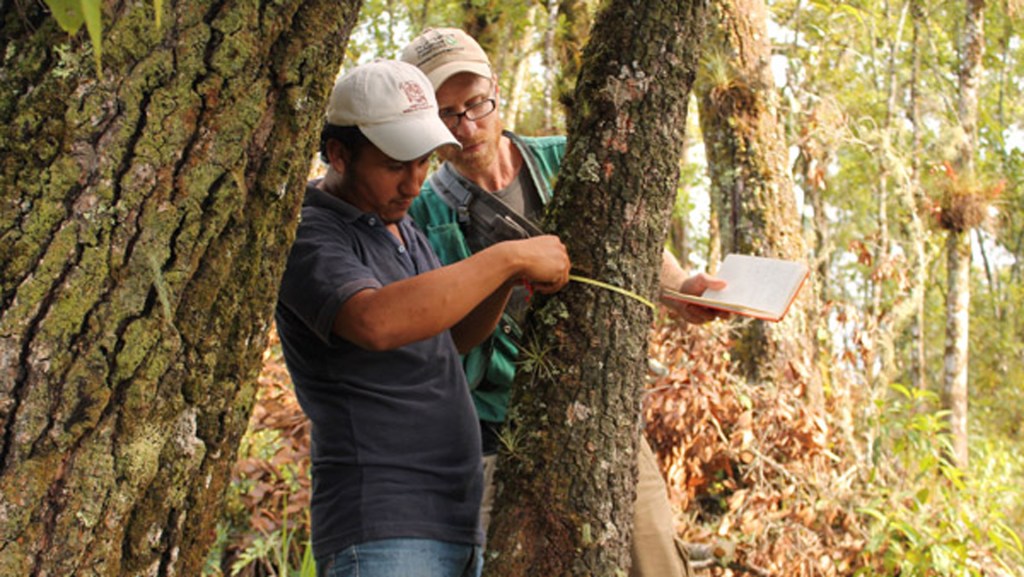Can Forests Save Us?
A new paper out in the Journal Nature this week adds a frightening twist to an enduring mystery around the role of forests and climate change.
What’s the twist?
Forests’ biosequestration superpowers may be running out. Intact forests are likely reaching a “steady state” where they can no longer compensate for our atmospheric carbon pollution.
Huh? Forests have superpowers?
We’ve long appreciated the important role forests play in the global carbon cycle. They store more carbon than the active ocean surface and atmosphere combined, and about 1/5 the amount in coal, oil and gas reserves. This is because as trees grow, photosynthesis sucks in CO2 and locks it away in wood fibers at a rate double the emissions from the entire global fleet of automobiles.
But the real forest superpower was only recently revealed when scientists uncovered an increase in this rate of biosequestration over the last half-century. (See more on the discovery of this superpower from my colleague Bronson Griscom).
Why is this so surprising?
The conventional wisdom has been that, as forests grow, they sequester carbon up to a “steady state”: at a specific age, forests reach an equilibrium where old trees dying and decomposing is balanced by young trees growing up to take their place. (See Eugene Odum’s 1969 Paper in Science and Borman and Likens 1979 book.)
The 50-year increase implies that forests are responding to some change in the global system. What’s the source of this change? You guessed it: carbon pollution.
Because CO2 is core ingredient to the photosynthesis chemical mechanism, it makes sense that CO2 fertilization could stimulate an increased rate of biosequestration. (Note that there’s still some controversy on this issue with one recent paper supporting atmospheric CO2 fertilization theory, and one disputing it, but so far no one has come up with a more plausible alternative hypothesis.)
Whatever the cause, the paper out this week is the first to show the forest biosequestration rate slowing in the most recent decade. It analyzes 321 long-term monitoring plots in the Amazon basin and concludes a significant net decrease in carbon storage when comparing recent data with the 1990s.
Why the new conclusion?
The new study includes careful accounting of tree deaths showing a marked increase in mortality between 1985 and 2010, swamping the signal from increased growth. In other words, even though individual old trees retain their biosequestration superpowers, something is killing them at an overwhelming rate.
Who’s the culprit? Right again: climate change. More droughts are stressing trees to their limit.
What does this mean for forest conservation
Forests are doing their best to compensate for carbon pollution, but they’re reaching their limit. The Nature Conservancy’s mission to conserve and restore nature’s biosequestration superpowers could not be more urgent. Nature can help us solve the world’s most pressing challenges, but we better get to work quick conserving nature’s superpower, before it’s too late.




Nice article, Peter. Very alarming. Thanks for your work.
You ask a good question Andrew. Let me see if I can clarify.
REDD (Reducing Emissions from Deforestation and Degradation) is about avoiding carbon emissions from human damage to forests. REDD “credits,” in whatever form, incentivize policies and activities that REDUCE this damage (the R of REDD).
The “Mature Forest Sink” is like REDD EXTRA credit; is happening in the background wherever we’re NOT cutting forests down. The point of paper is that while this “extra credit” has been miraculously increasing (imagine your teacher awarding you more extra credit on every new test you take), it seems to be reaching an asymptote now (don’t expect the next test you take to have more extra credit than the last one).
Confusing issue. Thanks for your question.
So if I followed all this, biosequestration is on the decline due to climate change stressing trees and sending them to an early demise. Is that a risk to REDD+? If there’s variability in carbon sequestration then are credits somehow devalued? I’m probably showing my ignorance … but curious.